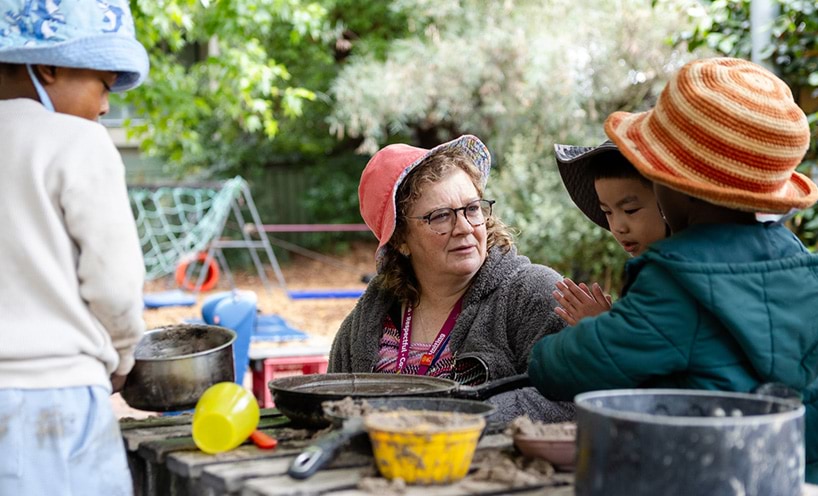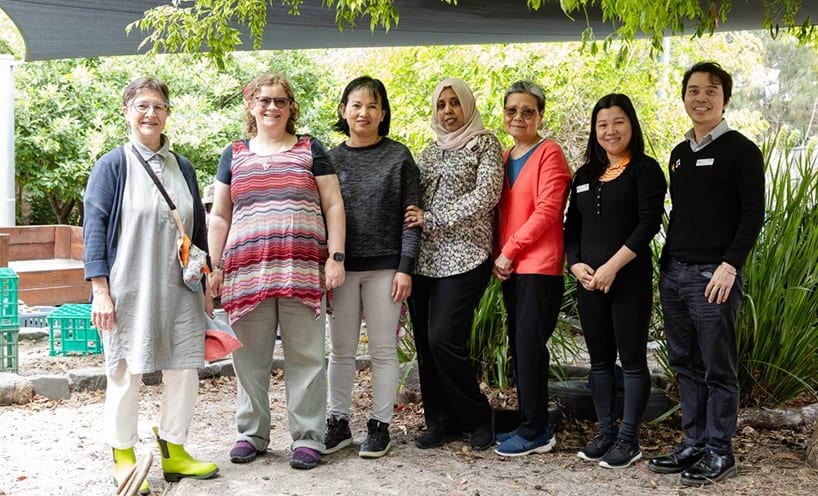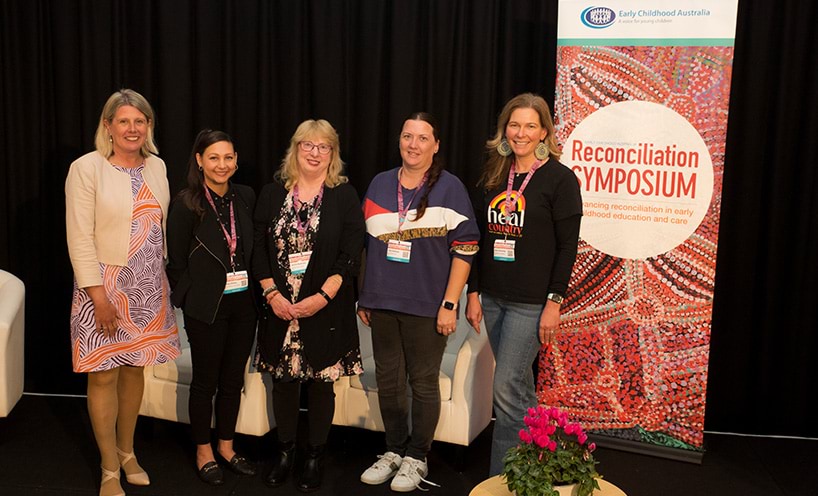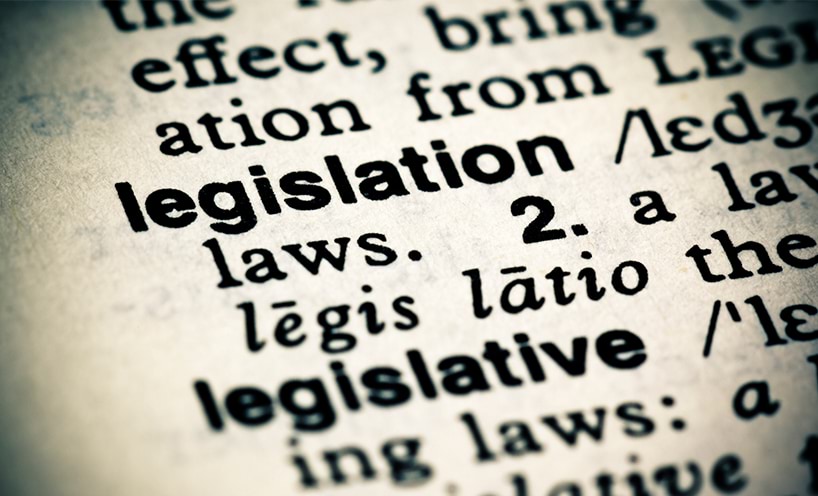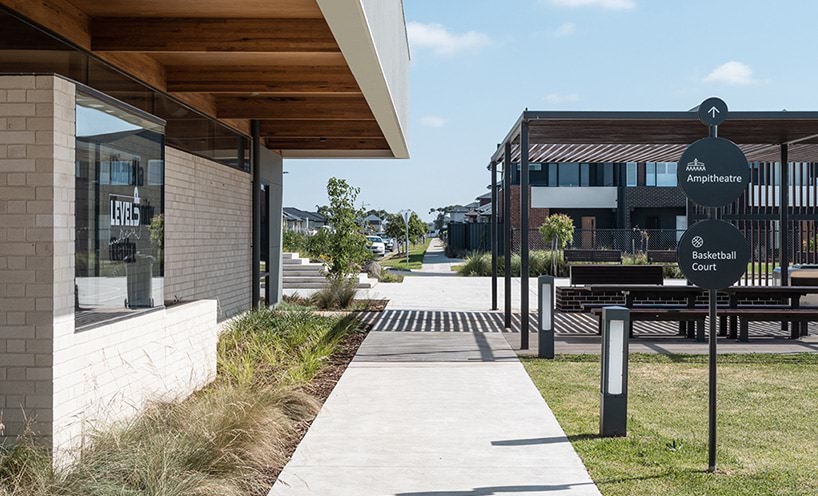- Published by:
- Department of Education
- Date:
- 27 June 2024
The Early Childhood Update e-newsletter is sent to early childhood teachers and workers, but is open to anyone interested in best practice in early years education and evidence-based teaching approaches. Subscribe here to receive the e-newsletter(opens in a new window).
Reflecting on the year so far
As we reach the halfway mark of 2024, the profound impact of your skill is clear.
Dear early childhood education and care services
I often reflect on the profound impact your skills and knowledge have on outcomes for Victorian children, and this edition of Early Childhood Update showcases our ongoing focus on supporting your professional development.
Along with providing more information about Pre-Prep in 2025 and beyond, in this edition we also continue to reiterate our commitment to professional development for all career stages, with a look at opportunities for teachers and educators to access coach and mentor training and conferences for early career teachers open for registrations.
And as we recognise our great teachers and educators, we also want to showcase the amazing architects behind some of our best designs for early learning spaces, including kindergartens and early learning centres. Nominations are now open for the Victorian School Design Awards, so if you’ve been involved in a project that you think reflects the very best of our world-class ambitions, be sure to let the architect know about the awards and encourage them to submit their designs.
Finally, building on our focus on reconciliation in our last edition, I would also like to encourage you to read our report on the recent Early Childhood Australia Reconciliation Symposium in Canberra. The department supported 4 Victorian delegates to attend the event, and I am pleased to share some more advice on how educators can implement good practice in their daily interactions with children and families.
Thank you for reading another edition of Early Childhood Update. I encourage you to share this with your workforce, and if you know anyone who might enjoy reading this newsletter, please encourage them to subscribe. And, as always, thank you for everything you continue to do in support of Victoria’s children and families.
Bronwen FitzGerald
Deputy Secretary
Early Childhood Education
What you need to know about Pre-Prep in 2025 and beyond
How a more gradual staging of the roll-out will provide more time for the sector to grow, and supports for you to talk about Pre-Prep and promote to your community.
As we shared in our previous edition of Early Childhood Update, Four-Year-Old Kindergarten will gradually transition to Pre-Prep from 2025, with programs across Victoria increasing from 15 to 30 hours each week.
Although Pre-Prep will be rolling out more gradually, the roll-out of Pre-Prep in 2025 has not changed. Services in Ararat Rural City, Gannawarra Shire, Hindmarsh Shire, Murrindindi Shire, Northern Grampians Shire and Yarriambiack Shire can offer between 16 and 30 hours of Pre-Prep in 2025.
While there is no change to when Pre-Prep starts in most rural and regional local government areas (LGAs) between 2026 and 2028, the maximum number of program hours services can offer will increase in stages.
Children who stand to benefit most from kindergarten will continue to be prioritised and receive early access to Pre-Prep, no matter where they live in the state. From 2026, Aboriginal and Torres Strait Islander children, children from a refugee or asylum seeker background, and children who have had contact with Child Protection services will have access to up to 25 hours of Pre-Prep a week, increasing to up to 30 hours a week from 2028.
At full roll-out, Pre-Prep will mean that children across Victoria can ultimately access up to 30 hours of kindergarten in the year before school – giving children more time to learn through play and to develop the skills for school and life.
Please refer to this guidance on the adjusted roll-out timeline and the maximum hours of Pre-Prep a service can offer per week for everything you need to know.
Why are we conducting a more gradual roll-out?
The more gradual staging of the roll-out will provide more time to build additional infrastructure and grow a strong and stable workforce to successfully deliver the reforms in partnership with the sector.
What are the benefits of Pre-Prep?
Pre-Prep will see an increase in the hours of teacher-led play-based learning in the year before school that will continue to align with the Victorian Early Years Learning and Development Framework.
Pre-Prep will give children even greater access to the many benefits of early childhood education, including more time to develop important social and emotional skills.
Teachers and educators will have more time with children to be able to provide deeper and more deliberate play experiences, which will give children more opportunities to embed their learning.
A new information sheet, ‘Two years of early childhood education — what the evidence says’ has been developed to help you and your colleagues understand and explain the benefits of early childhood education to families and the community.
Are there any changes to Three-Year-Old Kindergarten and Free Kinder?
There are no changes to the roll-out of Three-Year-Old Kindergarten and Free Kinder, and these programs will continue to benefit families across Victoria.
Services can offer between 5 to 15 hours of funded Three-Year-Old Kindergarten, scaling up to 15 hours per week by 2029.
Promoting Pre-Prep in the 2025 roll-out areas
The department recently held an information stall in a town in each of the 6 local government areas set to deliver Pre-Prep in 2025. This enabled local families and the broader community to ask questions about Pre-Prep, and for promotion of the new initiative and the benefits of early childhood education more broadly.
Throughout May and June, an information stall was held in Kerang (Gannawarra), Alexandra (Murrindindi), Ararat, Stawell (Northern Grampians), Warracknabeal (Yarriambiack) and Nhill (Hindmarsh).
An advertising campaign, including local newspapers, radio, digital and social media, coupled with some outdoor banners on trailers is now live in these areas, promoting Pre-Prep for next year and encouraging families to enrol.
Find out more
For more information, refer to Pre-Prep.
Services and providers can find communications materials to promote Pre-Prep on the Communicating about kindergarten to your community.
Visit the Kindergarten Resources Portal to download digital copies or order printed brochures explaining the Pre-Prep roll-out.
For further enquiries, contact the department’s Change Management team by email: bsbl.change.management@education.vic.gov.au
Professional development for all career stages
Whether you’re at the beginning of your career and want to network with your peers, or more experienced and looking to mentor others, we’ve got programs to help.
The department is offering professional development for teachers and educators at all stages of their careers. Registrations are now open for coach and mentor training, as well as conferences for early career teachers.
Whatever stage you’re at in your career, we’re committed to your professional development.
Coach and Mentor Training program
If you’re an experienced teacher or educator already in a coach or mentor role, or just want to boost your skills, then make sure you register for the last fully subsidised Coach and Mentor Training Program intake for 2024.
Based on best-practice industry standards and research, this skills-based program builds on your existing knowledge through face-to-face and online components.
The program explores your current coaching and mentoring approach, and helps you further develop positive partnerships with the colleagues you’re supporting.
The program will help you to:
- identify and use data to inform approaches to coaching and mentoring
- use coaching and mentoring approaches to support change
- support your own wellbeing and the wellbeing of others.
Additional specialist modules are available to tailor the learning to address participants' professional learning needs or priority areas within their service.
Following completion of the program, an optional alumni network is available for ongoing development and support.
Registrations close Tuesday 6 August 2024.
For more information, including eligibility, visit Coach and Mentoring Training program.
Beginning Teacher Conferences
If you’re a teacher at the start of your career looking to strengthen your professional practice and build professional networks with peers, take part in the Beginning Teacher Conferences.
The conferences are tailored specifically for those in their first 6 to 12 months of teaching, and for teachers working in funded kindergarten program services who are expected to graduate in the next 12 months.
Participants will work through practical problems with their peers in deep-dive discussions, while also hearing from experts on topics including:
- supporting children with additional needs
- Aboriginal perspectives
- supporting effective school transition.
You can attend the conferences online or in person at the Victorian Academy of Teaching and Learning, 41 St Andrews Place, East Melbourne, from 9 am to 3 pm on the following dates:
- Friday 12 July 2024
- Monday 15 July 2024
- Wednesday 28 August 2024
- Thursday 12 September 2024
- Thursday 31 October 2024.
To register, visit Beginning Teachers Conference series.
Find out more
For more information about these opportunities, refer to:
Reconciliation Symposium focuses on improving outcomes for children
Department-sponsored delegates attend national early childhood event.
The department recently sponsored 4 delegates from rural and regional Victoria to join the Early Childhood Australia Reconciliation Symposium, held on Ngunnawal Country in Canberra on Friday 3 and Saturday 4 May 2024.
As part of our commitment to strengthening Aboriginal inclusion and self-determination – and in line with our commitment to achieving the goals set out in Marrung: Aboriginal Education Plan 2016–2026 and actions in Dhelk Wukang 2022–2026 Aboriginal Inclusion Plan – we supported 4 Victorian delegates to join more than 300 people from the early childhood sector at the annual event.
Exploring reconciliation
Across the 2 days, attendees explored the nature of reconciliation, how educators can implement good practice in their daily interactions with children and families, and how we can work towards a better future for all Australians.
Jacinta Anderson from Latrobe City Council, Bianca Hornby from Alpine Children’s Services, Holly Swetman from Shine Bright EYM in Bendigo, and Sarah Womersley from Anglesea Kindergarten all received travel scholarships to attend the event.
Alongside 300 attendees from across Australia, they heard from a range of keynote speakers that included an opening address from Karen Mundine, CEO, Reconciliation Australia, and talks from Catherine Liddle, CEO, Secretariat of National Aboriginal and Islander Child Care, Aunty Denise Proud and Dr Melinda Miller.
Our delegates said the event offered valuable opportunities to engage in meaningful discussions with their peers, led by guest speakers who shared their own valuable insights and wisdom on supporting cultural safety in the sector.
Supporting cultural safety
To help you promote cultural safety and Aboriginal self-determination in your services, please refer to our resources to support Koorie children and families.
You can also learn more about self-determination in the broader education system by reading Strengthening Aboriginal Self-Determination in Education - Campfire Conversations: reflections and directions 2022-23.
Last month’s edition of Early Childhood Update, also contains advice about how we can support this vision in early childhood education through reconciliation action plans.
Dhelk Wukang
Dhelk Wukang means ‘giving goodness, giving respect’ in the language of the Djaara people of central north-western Victoria.
It is our pledge to strengthen Aboriginal inclusion and cultural safety and promote Aboriginal self-determination at all levels within the department.
Find out more
For more information, visit the Early Childhood Australia Reconciliation Symposium website.
For further enquiries, please contact the department by email: ec.quality.supports@education.vic.gov.au
Complying with Australia’s Foreign Relations Act
Early childhood services interested in forming new or varying existing foreign arrangements in 2024 must submit all forms to the department by 9 August 2024.
The department is seeking expressions of interest (EOI) from all school and school-council run early childhood education and care (ECEC) services wanting to form a new or vary an existing foreign arrangement in 2024.
This is in line with Australia’s foreign policy objectives under the Australia’s Foreign Relations (State and Territory Arrangements) Act 2020.
Under the Act, all school and school council-run ECEC services must submit their proposed arrangements, or variations to existing arrangements, to the Australian Government’s Department of Foreign Affairs and Trade through our department.
The department’s EOI process for new or existing foreign arrangements takes place twice a year ‒ in February and June.
Submissions for the current EOI process close 5 pm Friday 9 August 2024.
Arrangements that need approval
The legislation extends to any written arrangements, agreements or contracts between school and school-council run ECEC services, as well as foreign entities such as overseas governments, universities and other schools.
Under the scope of the Act, arrangements can be in any form and do not need to be signed or legally binding to be relevant.
Examples of foreign arrangements requiring Australian Government approval include:
- partnership arrangements with overseas ECEC services or schools
- agreements and written arrangements
- contracts
- memoranda of understanding
- educator exchange programs.
What’s the first step?
Before negotiating or entering into arrangements with foreign entities, please contact the department’s International Education Division Stakeholder Engagement team.
This is an important first step in the process, because the International Education Division will tell you what documents to complete, when to complete them by, and how to submit them.
This ensures that arrangements between state and territory government departments and their international counterparts are aligned with Australia’s foreign policy objectives.
How to submit an EOI?
If you are considering varying or entering into a new foreign arrangement between now and December 2024, you need to complete the below documents and submit to the International Education Division by Friday 9 August 2024:
Find out more
For further enquiries, contact the International Education Division Stakeholder Engagement team by email: ied.stakeholder.engagement@education.vic.gov.au.
Victorian School Design Awards nominations open
Help us celebrate the architects behind some of our best-designed schools, kindergartens and early learning centres, with entries closing 26 July 2024.
The 2024 Victorian School Design Awards are on again, with entries in the Best Kindergarten or Early Learning Centre category closing Friday 26 July 2024.
The annual awards recognise the outstanding architects making Victoria a world leader in school and kindergarten design.
Last year, Christopher Peck, from Melbourne-based architects AOA, took honours in the Best Kindergarten or Early Learning Centre category for their design of the new Pinewood Child and Family Hub, in Mount Waverley, southeast of Melbourne.
The rebuild was in partnership with Monash City Council and saw the creation of 36 extra kindergarten places for the local community.
The judges praised the hub’s design and its indoor/outdoor connections, as well as the strong sense of homeliness AOA created.
And with so many world-class education centres being built across Victoria in recent years, we know the awards will be hotly contested again this year.
So, if you’ve been involved in a project that you think reflects the very best of our ambitions, please let the architect know about these awards and encourage them to submit their designs.
Winners will be announced at a gala ceremony held in Melbourne later this year.
Eligibility requirements
To be eligible, projects must be:
- completed between June 2022 and June 2024
- a new or upgraded Victorian government school
- not-for-profit kindergartens or early learning centres built or upgraded with Victorian Government funding.
Find out more
For more information, refer to the 2024 Victorian School Design Awards.
